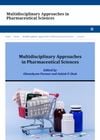 December 1989 in “The Journal of Dermatologic Surgery and Oncology”
December 1989 in “The Journal of Dermatologic Surgery and Oncology” New techniques and findings in dermatologic surgery show improved pain management, safer liposuction, better hair transplantation, and effective treatments for skin conditions.
 April 1955 in “Archives of pediatrics & adolescent medicine”
April 1955 in “Archives of pediatrics & adolescent medicine” Children's skin diseases need special care and treatment.
 37 citations,
June 2021 in “Journal of the European Academy of Dermatology and Venereology”
37 citations,
June 2021 in “Journal of the European Academy of Dermatology and Venereology” Adult skin quickly reacts to short-term environmental and internal stress, leading to various skin issues and the need for protective measures.
February 2010 in “Journal of the American Academy of Dermatology” The shampoo and conditioner improved dry, damaged hair significantly after three uses.
 1 citations,
January 2019 in “Paediatrics and Child Health”
1 citations,
January 2019 in “Paediatrics and Child Health” The document concludes that understanding hair biology and recognizing hair conditions are crucial for managing and treating hair loss in children.
 1 citations,
January 2017 in “International Journal of Trichology”
1 citations,
January 2017 in “International Journal of Trichology” Psychological stress and personal history are significant factors in hair loss.

Herbal remedies like liquorice and aloe vera may help manage PCOS symptoms.
 September 2021 in “Medical lasers”
September 2021 in “Medical lasers” Laser treatment followed by a special hair growth solution increased hair count and thickness without side effects.
 39 citations,
April 2011 in “International Journal of Dermatology”
39 citations,
April 2011 in “International Journal of Dermatology” Skin diseases are very common in poor areas, and there's a need for affordable ways to manage and improve skin health.
 1 citations,
April 2023 in “PubMed”
1 citations,
April 2023 in “PubMed” Biocompatible artificial hair implants significantly improved patients' quality of life and were successful.
 May 2023 in “Aesthetic Plastic Surgery”
May 2023 in “Aesthetic Plastic Surgery” The document concludes that there are various surgical techniques for hair restoration, their success depends on the surgeon's skill, patient's health, and quality of donor hair, and they can potentially improve the mental well-being of those with hair loss.

Finasteride treatment slows down hair loss, boosts hair growth, and may increase hair thickness or length, but it can cause side effects like decreased libido and depression in less than 1% of people.
 January 1995 in “Surgical technology international”
January 1995 in “Surgical technology international” Using consecutive transposition flaps can manage gaps in hair growth after multiple hair loss surgeries.
 45 citations,
April 2019 in “International Immunology”
45 citations,
April 2019 in “International Immunology” The study concluded that immune cells attacking hair follicles cause hair loss in alopecia, with genetics and environment also playing a role, and highlighted the potential of certain treatments.
 41 citations,
January 2011 in “Nippon Ishinkin Gakkai Zasshi”
41 citations,
January 2011 in “Nippon Ishinkin Gakkai Zasshi” Tinea incognito in Iran commonly affects adults and mimics other skin conditions.
26 citations,
December 2019 in “Indian Journal of Dermatology, Venereology and Leprology” PRP combined with minoxidil is the most effective and safe treatment for male pattern baldness.
 2 citations,
February 2014 in “Hair therapy & transplantation”
2 citations,
February 2014 in “Hair therapy & transplantation” Alopecia Areata is an autoimmune condition causing hair loss, influenced by genetics, environment, and possibly improved by anti-MIF therapy, with many patients experiencing regrowth within a year.
 1 citations,
March 1985 in “Head & neck surgery”
1 citations,
March 1985 in “Head & neck surgery” Hair-bearing punch grafting effectively repaired damage from artificial hair implants.
 January 2024 in “Elsevier eBooks”
January 2024 in “Elsevier eBooks” Increasing regulatory T cells may help treat alopecia areata by reducing autoimmunity and promoting hair growth.

Lactobacillus plantarum L30 can help repair hair follicles and improve hair growth in alopecia.
 May 2023 in “Health science reports”
May 2023 in “Health science reports” Coloring shampoos for gray hair may cause gene mutation, reproductive issues, and skin damage, needing stricter regulation and expert consultation.
 March 2023 in “International Journal of Biomedicine”
March 2023 in “International Journal of Biomedicine” Hair loss from Telogen Effluvium can be managed by treating the underlying cause and may improve with treatments like minoxidil.
November 2022 in “International Journal of Pharmaceutical and Bio-Medical Science” The herbal hair oil may improve hair shine and address hair issues, but its effectiveness is unclear.
 October 2019 in “The Egyptian Journal of Hospital Medicine”
October 2019 in “The Egyptian Journal of Hospital Medicine” Both hair transplantation and skin expansion are effective for treating cicatricial alopecia, with the best method depending on the patient's age, alopecia size, and other factors.
 53 citations,
October 1978 in “Archives of dermatology”
53 citations,
October 1978 in “Archives of dermatology” Zinc supplements can resolve skin issues caused by zinc deficiency.
 23 citations,
October 2016 in “Journal of Midwifery & Women's Health”
23 citations,
October 2016 in “Journal of Midwifery & Women's Health” The document concludes that health care providers should offer culturally competent care and more research is needed to improve health outcomes for transgender individuals.
 18 citations,
July 2022 in “Frontiers in Immunology”
18 citations,
July 2022 in “Frontiers in Immunology” Volatile organic compounds can cause inflammation and increase the risk of autoimmune diseases.
17 citations,
November 2021 in “Journal of Cosmetic Dermatology” Combination therapies for androgenetic alopecia work best but can have significant side effects and costs.
 14 citations,
October 2019 in “International Journal of Women's Health”
14 citations,
October 2019 in “International Journal of Women's Health” Menopausal acne is treated with medications and lifestyle changes, but careful choice is needed due to side effects.
14 citations,
March 2014 in “Acta anaesthesiologica Taiwanica” A man developed rare complications after nose surgery, stressing the need for better prevention.

























